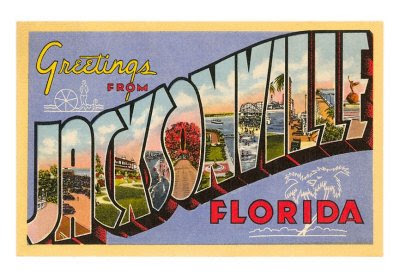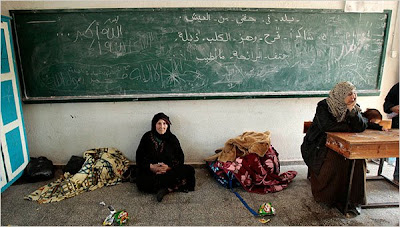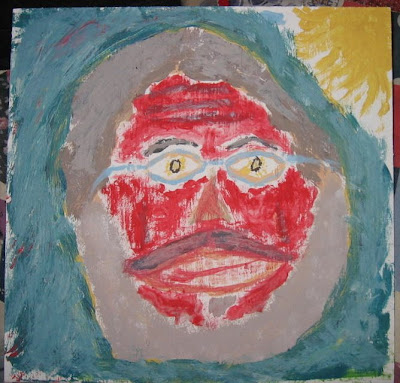by Black Agenda Report Managing Editor Bruce Dixon
It's completely appropriate to celebrate the election of the first black president, just like we celebrated the first black mayors in Newark, Gary and Cleveland in the sixties, of Los Angeles and Atlanta in the seventies, and New York and Chicago in the eighties. When the doors were forced open, when the demographics were right, enough money was raised and sufficient numbers of black voters mobilized, thousands of African Americans were elected to school boards and city councils, to state legislatures and congress, to county boards and statewide offices. And now, an African American has taken the oath of president of the United States.
As one of many who worked day and night for three years in the early 1980s to elect Chicago's first black mayor, I can understand the undefineable tears shed by many last November, and the shiver some felt when Barack Obama laid his hand on Abe Lincoln's bible. We danced and wept and prayed and rejoiced in Chicago a generation ago, and in other places too. But eventually the party was over, and this one will soon be too, for most of us. For many of us, it's already time to take stock. Were the hopes and dreams and prayers and effort put behind the Obama campaign a wise investment? And what does the election of Barack Obama mean for the position of African Americans as global citizens?
Until now, black Americans have always enjoyed, on the world stage, a presumption that we as a people and as individuals were not responsible for the lawless and criminal acts of the US government around the world. In the Vietnam era, many black GIs came home with stories that their lives had been directly spared by Viet Cong and North Vietnamese fighters at close quarters who could have killed them, but seemed to single out white American soldiers instead. When Iranian students captured the US embassy in Teheran, they offered to let the black Americans go.
Polling data has consistently shown African American communities to be less sympathetic to US military adventures around the world, and to harbor more healthy skepticism of war aims and claims than any other sector of the electorate. Immediately before the Iraq invasion, a Gallup poll showed black America opposing the war almost two to one, the opposite of white America. No wonder our international image is dominated by figures of courageous moral opposition to empire like Muhammed Ali and Dr. Martin Luther King. But with the election of Barack Hussein Obama, and the explicit targeting of Africa as a battleground for American control of the world's resources and markets, that is definitely about to change.
The moment Barack Obama took the oath of office, he became commander in chief of America's far-flung global empire, more than 800 military bases strung across the planet, and at least a million and a half uniformed personnel, secret prisons, torturers, and looters of whole economies. The US spends more on arms than all the rest of the planet combined, and in spite of our economic woes, Obama is not committed to reducing this. He may ask us to cut "entitlements" and tighten our belts, but reducing the military budget, the production of arms and the training of bloodthirsty proxy armies in poor countries all around the world is not to be questioned under an Obama administration.
In Africa, perhaps the best example, civil societies need the freedom to organize health care and education. They need control over their own national resources, and they need an international monetary system that does not facilitate the wholesale looting of their economies. They need clean water, low-priced anti-HIV drugs.
Barack Obama instead is identified with fundamentalist preacher Rick Warren, responsible for funding and training African pastors who hold condom-burning rallies and lead marches and rallies to threaten gays and so-called 'witches" with arrest and death.
Rather than seek allies in the vibrant civil sector of African societies, Obama's advisors are enthusiastic supporters of the Bush-created AFRICOM, which works to strengthen the least productive sector of African societies --- Africa's rapacious military machines.
The informative blog Crossed Crocodiles tells of a January 18 multinational miltary seminar held in Dakar, Senegal to hand out American gadgets and treats to African armies in support of US goals for the continent, "... cement(ing) the US Africa Command in place as an imperial colonial power organizing and directing proxy armies, controlling the tools, techniques, perhaps the language of their communication...."
From Congressional testimony by the Africa Faith and Justice Network, in July 2008:
The ‘train and equip’ idea is not new. In fact, it has a very bad history in Africa – a history that harkens back to the proxy wars of the Cold War and U.S. support for illegitimate or corrupt regimes.
In the 1980’s, the U.S. spent $500 million to train and equip Samuel Doe in Liberia. According to a report from the U.S. Army’s Strategic Studies Institute, “every armed group that plundered Liberia over the past 25 years had its core in these U.S.-trained Armed Forces of Liberia (AFL) soldiers. There is thus a fear that when the United States withdraws support for its security sector reform program and funding for the AFL, Liberia will be sitting on a time bomb; a well-trained and armed force of elite soldiers who are used to good pay and conditions of service, which may be impossible for the government of Liberia to sustain on its own.”
AFRICOM’s value as a structure for legitimizing African armies should therefore be called into serious question. The long-term ramifications of irresponsible training and equipping should be taken into consideration before the U.S. military is awarded more power in Africa. PMC’s should be debated and scrutinized by the African people and parliamentary bodies in every country should be encouraged to enact legislation against their operations. Propping up and arming corrupt leaders is no path to stability in Africa. The U.S. must act as a credible force for peace, not an overzealous superpower that employs private contractors to conduct military operations in Africa.
Many question the idea of training and coordinating African militaries at all. Many African military forces are primarily used against their own people in order to keep the current regime in power.”
Many Africans question this policy, as do those Americans who are aware of it. Barack Obama and his advisors are certainly aware of it. Many of them helped design it, and Obama has hired them for what they know and what they do. The question now is what will we do, and what will we help our fellow citizens, especially African Americans know about our longstanding and deadly intervention on the African continent.
Through the Pentagon and the CIA, according to Asad Ismi and Kristen Schwartz in the Ravaging of Africa, the US has fueled no less than fourteen separate African wars in recent decades. We have sent weapons, military training and military aid to more than 50 of Africa's 54 nations, aided both sides in several wars, and more than two sides in Rwanda, the Congo, and Somalia. We are the authors of a war in Somalia in which a million people have perished, a capital city has been deserted, and several million more are homeless, destitute and on the verge of starvation. US forces regularly fly missions in support of the Ethiopian invasion force in Somalia, which sits atop a lake of untapped oil.
Our economic looting and militarization of African societies prevents them from setting up education and health care systems that would retard the HIV-AIDS epidemic. Our predatory trade agreements prohibit African countries from rational public sector wealth building, and even seek to prevent African farmers from saving theirr own seeds to plant as they have done for millenia. Our banking system makes it possible for multinational corporations and corrupt Africans to take vast amounts of wealth offshore for injection into Western economies.
Some black Americans have been quoted in the media saying that they finally felt they could unpack their bags here in the U.S, that they could finally fly the American flag with pride. Good for them. We should let them know what that flag is standing for around the world, with or without a black man in the White House. We used to be regarded as a people of struggle, innocent of the crimes of our government. That era is over. It's time to wake up after the party and wonder what will become of the international image of African Americans in the wake of an Obama presidency?
Bruce Dixon is managing editor of Black Agenda Report and is based in Atlanta.





















